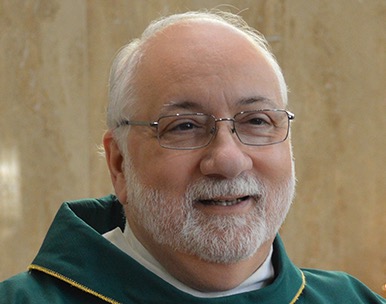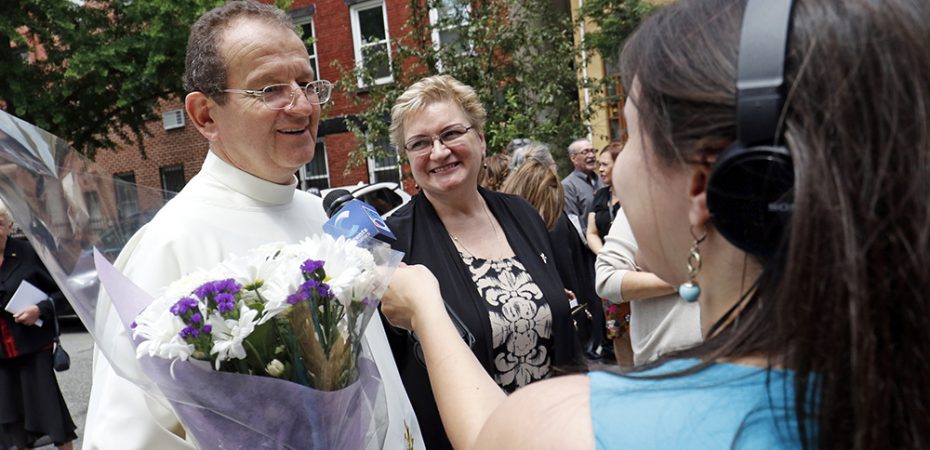Harmonizing God’s Call to Marriage and the Diaconate
God offers one integrated call with two distinct components
Deacon Dominic Cerrato Comments Off on Harmonizing God’s Call to Marriage and the Diaconate
 It’s commonplace to hear within the diaconal community that most permanent deacons have a dual call: the call to marriage and the call to the diaconate. Despite this widely held understanding, it can still be asked, Is this really an accurate way of describing the challenges associated with those having received both vocations?
It’s commonplace to hear within the diaconal community that most permanent deacons have a dual call: the call to marriage and the call to the diaconate. Despite this widely held understanding, it can still be asked, Is this really an accurate way of describing the challenges associated with those having received both vocations?
It’s certainly true that the tradition recognizes each of these as a call from God and, in this sense, authentic vocations. However, to see the married diaconate as a “dual vocation” may well obscure more than it reveals. This is because it implies that God speaks from both sides of his mouth. It’s as though in one ear God calls the man to be married, and in the other he calls him to the diaconate. Stuck in the middle is the man, teetering at times between the demands of one vocation over and against the demands of the other.
In such instances, the conventional wisdom is that he must find balance and, whenever there is conflict, he’s called to follow his “primary vocation,” which again, according to that same conventional wisdom, is marriage. It seems to me that this approach, though well-meaning, is rooted in a fundamental misunderstanding of the way God relates to us through our vocations.
To appreciate what I mean here, consider that a vocation, be it priestly, diaconal, religious, married or single celibate, is not so much a call to something but, first and foremost, a call to someone — Jesus Christ. Regardless of the kind of vocation, all vocations are an invitation to deep intimate communion with him. This is the innate and universal vocation of all human beings as Pope St. John Paul II taught in his 1981 apostolic exhortation Familiaris Consortio (cf. No. 11).
When a particular vocation is not contextualized in this broader universal vocation, when our call to marriage and the diaconate is seen as outside this invitation to draw close to the God who loved us into being, these vocations can neither be adequately discerned nor effectively lived. Put another way, particular vocations such as priestly, diaconal, religious, married or single celibate find their meaning, purpose and power within the universal vocation to love God above all else. This, in turn, capacitates us to love others and thus serve them as we would Christ himself. In this respect, these particular vocations are means to the universal end, intimate communion with God culminating in eternal life with him.
For the married deacon, the particular vocations of marriage and the diaconate are contextualized in the universal call and, because of this, God, who is One, speaks to the deacon with one voice. These are not two separate and distinct calls, but rather one integrated call with two distinct components. Indeed, because God never contradicts himself, the married deacon need not find balance, but integration. In other words, he must discern, in any given conflict, how to best follow the universal call to love and, within this context, choose one alternative over the other.
Most often this conflict will be resolved in favor of the deacon’s family obligations. This is because his relationship with his family is unique and exclusive. No other husband and father can take his place while, as with most pastoral ministries, another deacon or even a priest may cover. It can be the case, however, that the urgency of the ministry may, in order to follow most closely the universal call to love, be resolved in favor of the deacon’s ministry. For example, the unexpected death of a parishioner and the need to comfort the family in the absence of a priest will take precedence over dinner with the wife. Most situations will present the deacon with a clear way to resolve these conflicts. Other situations may require prayer, prudent discernment and consultation with our “religious superiors,” also known as our wives.
DEACON DOMINIC CERRATO, Ph.D., is editor of The Deacon and director of diaconal formation for the Diocese of Joliet, Illinois. He is the founder of Diaconal Ministries, where he gives national presentations and retreats to deacons and diaconal candidates. Follow him on Facebook to continue the conversation.





